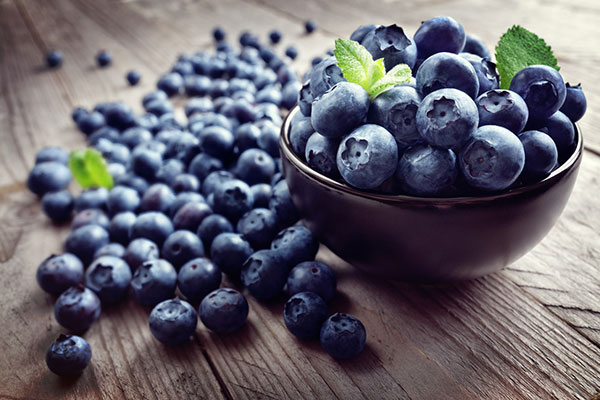 If you thought blueberries were just a fruit, think again. According to science blueberries are so much more.
If you thought blueberries were just a fruit, think again. According to science blueberries are so much more.
A recent study out of the University of Missouri-Columbia demonstrated that blueberries may help with cancer treatment. In an effort to find an adjunctive therapy for cancer treatment, Dr. Fang and her team looked at how blueberry extract worked in coordination with radiation therapy for cervical cancer. While radiation therapy is the primary treatment for cervical cancer, it also damages healthy cells. In her past research Dr. Fang showed how resveratrol, a compound found in grapes and red wine, helped to sensitize prostate cancer cells to radiation. As blueberries contain resveratrol as well a number of flavonoids, she sought to find out what effect blueberries could have on cervical cancer cells during radiation treatment.
Cervical cancer cells were tested in three different groups: radiation alone, blueberry extract alone, and radiation combined with blueberry extract. The results were impressive. Radiation alone reduced the number of human cervical cancer cells by 20%, blueberry extract alone reduced them by 25%, and blueberry extract combined with radiation reduced the cancer cells by 70%.
Researchers explained that the blueberry extract has a two fold effect. First, it sensitizes the cancer cells to radiation therapy, but it also reduces the abnormal cell growth that is the hallmark of cancer cell development. In essence, it both inhibits the birth of and promotes the death of cancer cells.
As is common in the research world, the study authors note that more research is needed to confirm that the use of blueberry extract could prove beneficial, especially in a clinical setting. But, as blueberries are common, fairly inexpensive, and generally good for you, the researchers expressed that blueberries should be “enthusiastically accepted” for boosting the effectiveness of existing therapies.
So, while blueberries may be a fruit, they can also be so much more. They can part of breakfast, lunch, dinner, dessert, snacks, and also part of a treatment. While this news doesn’t specifically impact bariatric patients and has nothing to do with weight loss, it should give gastric sleeve, gastric bypass, gastric band patients food for thought. Since you have a choice of foods to eat everyday in your post bariatric surgery diet, consider if you should choose a food that you know isn’t good for you or choose a food that could be good for you in ways you can’t even recognize on the surface. Instead of adding chocolate chips to your overnight oatmeal, add blueberries; instead of adding dried sugared cranberries to your salad, choose blueberries; instead of popping chips as a snack, choose blueberries.
The above is offered by Dr. Shillingford, M.D., P.A., a board certified surgeon specializing in laparoscopic, robotic, and weight loss surgery. Dr. Shillingford performs gastric sleeve, gastric bypass, gastric band, and revisional surgery at one of South Florida’s few hospitals designated as a Center of Excellence for Bariatric Surgery by the American Society for Bariatric Surgery. Dr. Shillingford’s reputation and surgical skills attracts patients from nearby areas such as Miami, Boca Raton, and Fort Lauderdale, and also as far away as Orlando, Jacksonville, Sarasota, Tampa, Fort Meyers, and Naples. Consuming fruit, such as blueberries, can benefit not just his bariatric patients, but even his general surgery patients, such as those needing hernia repair, gallbladder removal, and other surgical procedures.

 Am I A Candidate
Am I A Candidate  BMI Calculator
BMI Calculator  Why Choose Us
Why Choose Us